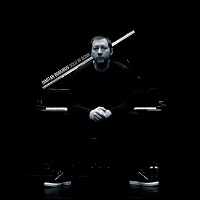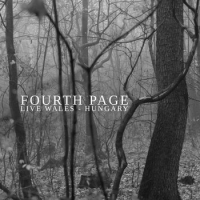Home » Jazz Articles » Album Review » Dimitar Bodurov: Solo in Bonn
Dimitar Bodurov: Solo in Bonn
Single notes fall as softly as snowflakes at the beginning of "Zvezda," as Bodurov patiently feels his way. A left-hand motif counters the right's explorative melody, but Bodurov is a restless soul, gradually pulling the two strands towards a middle ground just shy of unison. Gradually, left and right pull away from each other as rhythmic mantra and melody reassert themselves. For Bodurov rhythm provides ballast, but it's also a low-flickering flame that can suddenly burst into life, completely redirecting the narrative.
These are, however, essentially melodic improvisations, drawing from Bulgaria's deep folkloric well. On "Moma Bega" the pianist flits between scurrying runs and spacious impressionism. Rhythm is subdued on "Godini Godini," where a single-note melodic line unfurls like slowly-curling smoke. Bodurov milks the lyricism inherent in these melodies, but he is not averse to more angular attack or to abstract meditation. Nor do Bodurov's little rhythmic jams overstay their welcome; a deep breath and then a sudden plunge into uncharted waters.
Bulgaria's folk music has a reputation for the fastest rhythms in the Balkan region and Budurov's helter-skelter sprint on "Butch" attests to that. Technically impressive, on occasion Bodurov gives the impression that he possesses more than the standard two hands. Yet he is no slave to flashy display, and one of the most seductive aspects of his craft is his juggling of tempi. There is also notable variation in Bodurov's weight of touch, as on the episodic "Pai Dush Ko," which starts at a cantering rhythm, accelerates and intensifies, then decelerates and refines, before ending in dramatic fashion.
Bodurov's classical roots, particularly a feeling for baroque counterpoint, are never too far from the surface and imbue his often thrilling playing with a grammatical elegance. Poise and elegance are the watchwords on "Kalimanku Denku," a beautifully reflective piece which blends classical and folkloric colors. And, with the curator's feel for choreography, Bodurov bids adieu to the audience with a folksy romp that climbs to an inexorable peak. Note the striking photo on the album cover. The near-perfect balance between black and white appears artfully constructed, yet the symmetry is totally natural—much like the jazz, folk and classical language of this compelling live document. Let's hope the wait is a little shorter for the next solo adventure from the musical alchemist that is Dimitar Bodurov.
Track Listing
Zvezda; Butch; Moma Bega; Pai Dush Ko; Godini, Godini, Jovino; Kalimanku Denku; Straight Story.
Personnel
Dimitar Bodurov
pianoDimitar Bodurov: piano
Album information
Title: Solo in Bonn | Year Released: 2019 | Record Label: Optomusic
Tags
PREVIOUS / NEXT
Support All About Jazz
 All About Jazz has been a pillar of jazz since 1995, championing it as an art form and, more importantly, supporting the musicians who make it. Our enduring commitment has made "AAJ" one of the most culturally important websites of its kind, read by hundreds of thousands of fans, musicians and industry figures every month.
All About Jazz has been a pillar of jazz since 1995, championing it as an art form and, more importantly, supporting the musicians who make it. Our enduring commitment has made "AAJ" one of the most culturally important websites of its kind, read by hundreds of thousands of fans, musicians and industry figures every month.






















